This is a plain English summary of an original research article. The views expressed are those of the author(s) and reviewer(s) at the time of publication.
Adults who have frequent tonsillitis (infected tonsils) can have their tonsils removed surgically (tonsillectomy) or take medicines (painkillers and sometimes antibiotics). There are few studies in adults to support tonsillectomy and surgery rates vary across the country. This trial compared the two approaches. It included 453 adults with frequent tonsillitis and found that tonsil surgery was more effective and cost-effective than treatment with medicines.
These results could inform discussions between doctors and people with tonsillitis.
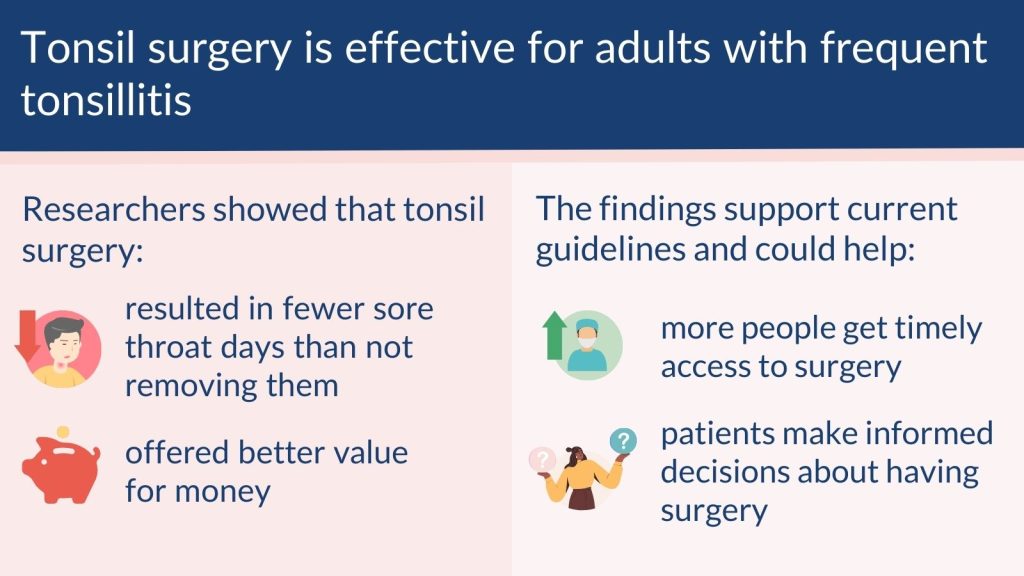
More information about tonsillectomy is available on the NHS website.
The issue: should adults with frequent tonsillitis have their tonsils removed?
The symptoms of tonsillitis include a sore throat, problems swallowing, and fever. It is often managed with medicines. However, to prevent future infections, some people with frequent tonsillitis have their tonsils removed surgically. It is a painful procedure, which often results in 14 days off work or out of education with a sore throat.
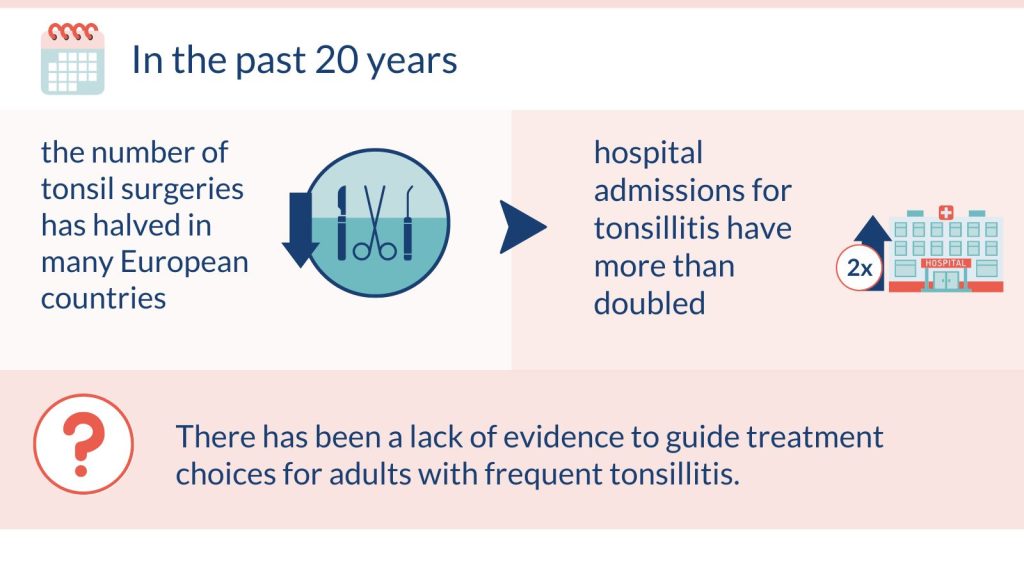
Before this study, there was a lack of evidence to support surgery to remove tonsils. This study provides high quality evidence on the most effective approach for adults with frequent tonsillitis: tonsillectomy or treatment with medicines.
What’s new?
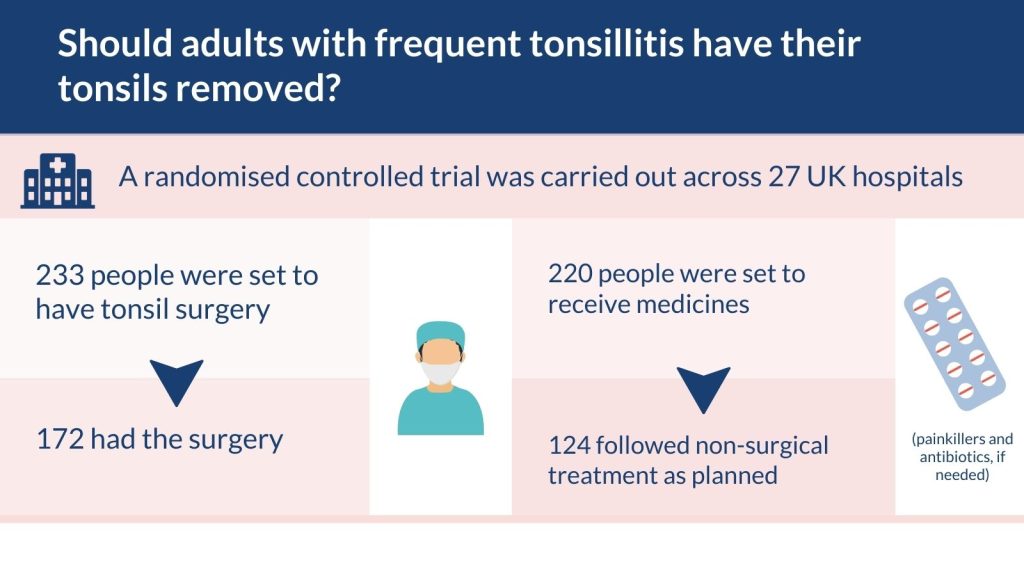
Most participants were white (90%) and female (78%). Some did not go ahead with the treatment they were allocated (they may have dropped out of the trial or switched treatment groups).
The main outcome of the study was the number of days people had a sore throat. For the tonsillectomy group, this included the days spent recovering from surgery.
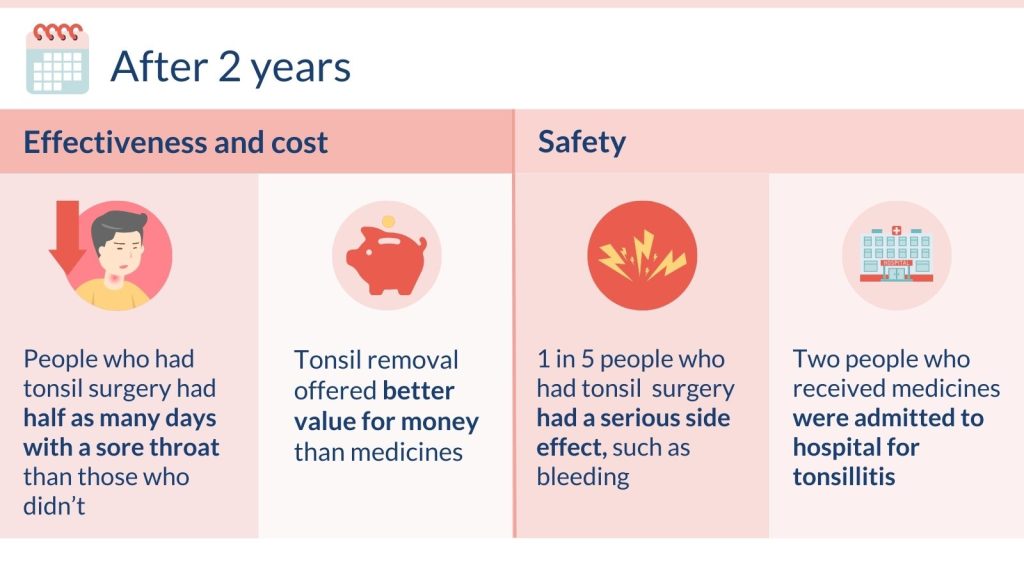
Serious side effects in the tonsillectomy group were similar to the side effects of any surgery, and included bleeding and infections.
Why is this important?
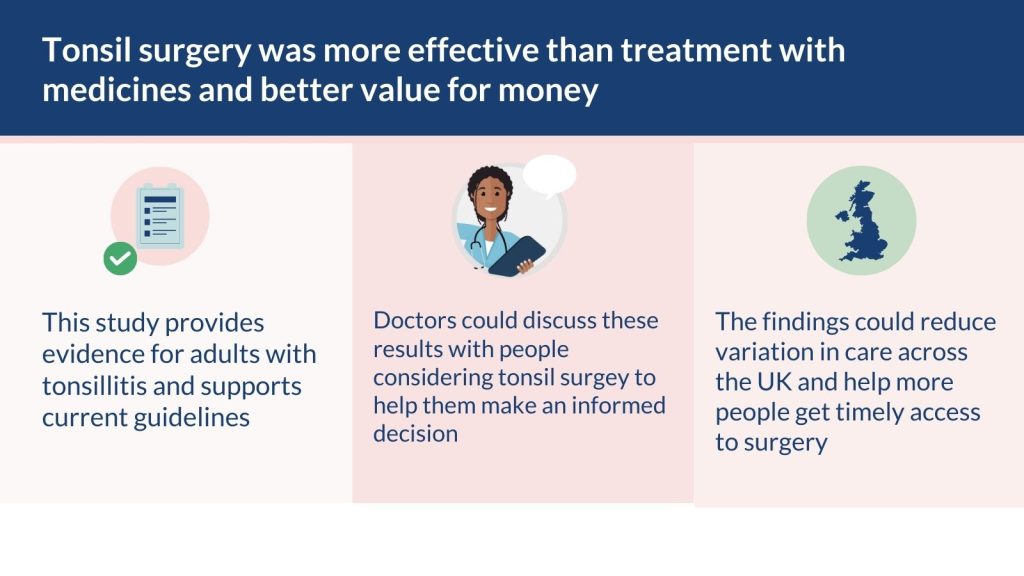
Doctors could discuss the results of this trial with their patients. For example, tonsillectomies result in fewer days with a sore throat, but surgery comes with risks of side effects. Doctors could also advise people about their options using a newly developed decision support aid.
UK and US guidance on tonsillectomy for adults is based on trials in children. This study provides evidence specifically for adults and supports current guidelines.
Rates of tonsil surgery vary across the UK, and many people struggle to access surgery. Another study showed that most adults have 27 episodes of tonsillitis over 7 years before they have their tonsils removed. This is many more than UK guidelines recommend (3 episodes over 3 years). The researchers hope this study will change practice and allow more people to have timely referrals for surgery.
Most participants were women, which is consistent with the greater number of women diagnosed with tonsillitis. The numbers who dropped out of the study (especially in the medicines group) slightly reduced the strength of the findings. However, this study provides high quality evidence to support the use of surgery to remove tonsils for adults with frequent tonsillitis.
You may be interested to read
This summary is based on: Wilson JA, and others. Conservative management versus tonsillectomy in adults with recurrent acute tonsillitis in the UK (NATTINA): a multicentre, open-label, randomised controlled trial. Lancet 2023; 401: 2051 – 59.
A BBC article about the study.
Patient information on tonsillitis and tonsillectomy from Ear Nose and Throat UK.
Another summary about the study from the NIHR.
The Journals Library report of this project: Wilson JA, and others. Tonsillectomy compared with conservative management in patients over 16 years with recurrent sore throat: the NATTINA RCT and economic evaluation. Health Technology Assessment 2023; 27(31).
Funding: This study was funded by the NIHR Health Technology Assessment programme.
Conflicts of Interest: The authors had no relevant conflicts of interest; full disclosures are available in the original paper.
Disclaimer: Summaries on NIHR Evidence are not a substitute for professional medical advice. They provide information about research which is funded or supported by the NIHR. Please note that the views expressed are those of the author(s) and reviewer(s) at the time of publication. They do not necessarily reflect the views of the NHS, the NIHR or the Department of Health and Social Care.
NIHR Evidence is covered by the creative commons, CC-BY licence. Written content and infographics may be freely reproduced provided that suitable acknowledgement is made. Note, this licence excludes comments and images made by third parties, audiovisual content, and linked content on other websites.